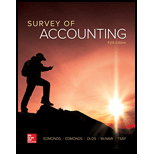
Fraud triangle
Sam Sharp is an accountant with a shady past. Suffice it to say that he owes some very unsavory characters a lot of money. Despite his past, Sam works hard at keeping up a strong professional image. He is a manager at Flowers and Associates, a fast-growing CPA firm. Sam is highly regarded around the office because he is a strong producer of client revenue. Indeed, on several occasions he exceeded his authority in establishing prices with clients. This is typically a partner’s job but who could criticize Sam, who is most certainly bringing in the business. Indeed, Sam is so good that he is able to pull off the following scheme. He bills clients at inflated rates and then reports the ordinary rate to his accounting firm. Say, for example, the normal charge for a job is $2,500. Sam will smooth talk the client, then charge him $3,000. He reports the normal charge of $2,500 to his firm and keeps the extra $500 for himself. He knows it isn’t exactly right. Even so, his firm gets its regular charges and the client willingly pays for the services rendered. He thinks to himself, as he pockets his ill-gotten gains, who is getting hurt anyway?
Required The text discusses three common features (conditions) that motivate ethical misconduct. Identify and explain each of the three features as they appear in the given scenario.
Want to see the full answer?
Check out a sample textbook solution
Chapter 4 Solutions
Survey Of Accounting
- What is the adjusted cost of goods sold for the year?arrow_forward???!!!arrow_forwardCedar Fabricators uses a standard costing system. For its main product, the standard material cost is $14.00 per kilogram and the standard quantity allowed is 3 kilograms per unit. During April, the company purchased 15,000 kilograms of material at $13.75 per kilogram and used 14,200 kilograms to produce 4,600 units. Calculate the material price variance and material quantity variance.arrow_forward
 Auditing: A Risk Based-Approach (MindTap Course L...AccountingISBN:9781337619455Author:Karla M Johnstone, Audrey A. Gramling, Larry E. RittenbergPublisher:Cengage LearningPrinciples of Accounting Volume 2AccountingISBN:9781947172609Author:OpenStaxPublisher:OpenStax College
Auditing: A Risk Based-Approach (MindTap Course L...AccountingISBN:9781337619455Author:Karla M Johnstone, Audrey A. Gramling, Larry E. RittenbergPublisher:Cengage LearningPrinciples of Accounting Volume 2AccountingISBN:9781947172609Author:OpenStaxPublisher:OpenStax College

